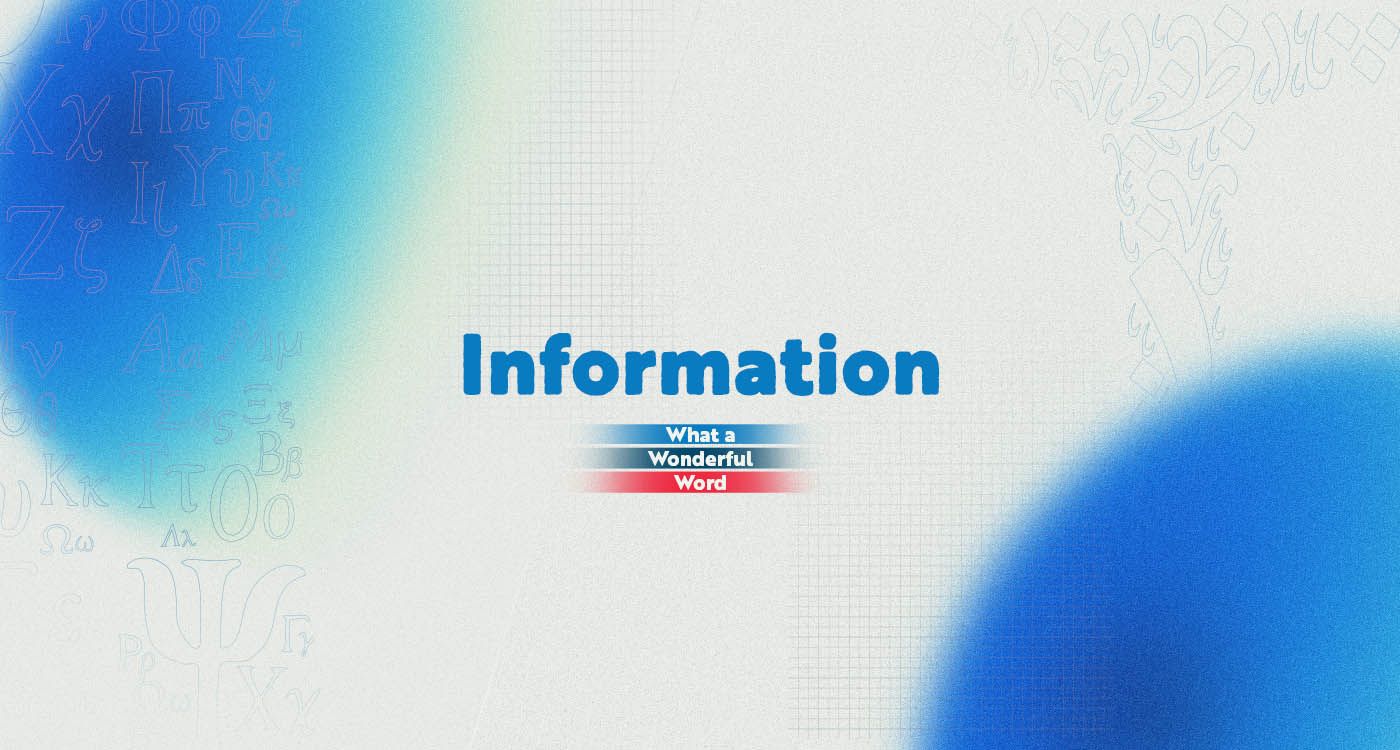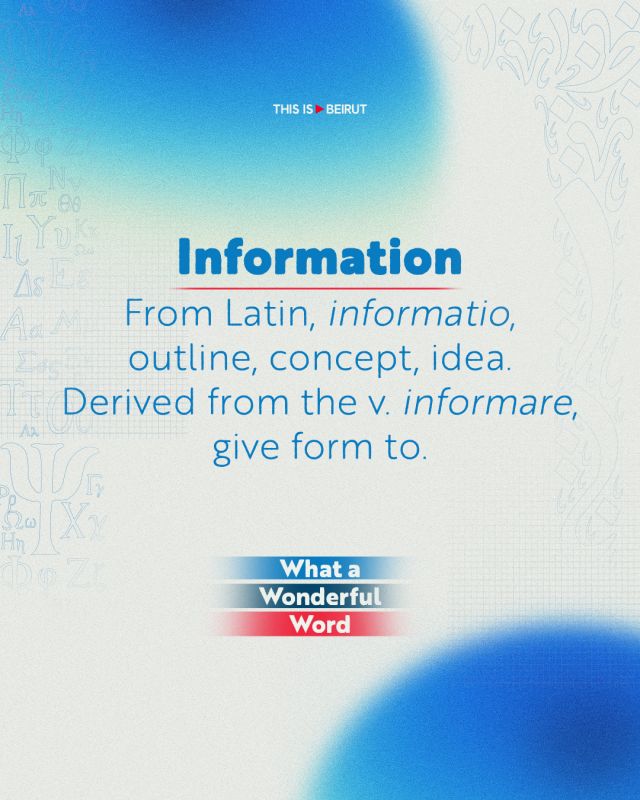
Born in medieval legal language and transformed by the digital revolution, the word information carries a history shaped by justice, knowledge, and transparency. On the tenth anniversary of the International Day for Universal Access to Information (IDUAI), celebrated this year in Manila, we look back at the evolution of a term that has become a strategic resource, a fundamental right and a global challenge.
On September 28, 2025, the International Day for Universal Access to Information (IDUAI) celebrates its tenth anniversary, proclaimed by UNESCO. This year, UNESCO and the Philippine government are hosting a global conference in Manila on September 29–30, under the theme “Ensuring Access to Environmental Information in the Digital Age.” The meeting underlines that access to information is a fundamental right, enshrined in international texts and recognized by many countries, including Lebanon – through Law No. 28 of 2017.
A look back at the word information: how did it move from a medieval legal term to a key concept in the age of algorithms?
From Legal Inquiry to Modern Media
From Old French informacion and Latin information — “outline, concept, idea” — derived from informare, “to shape, instruct, give form to”.
In its earliest legal use in Anglo-Norman, information referred to a judicial inquiry or formal accusation, a sense preserved in modern English where “an information” can still denote a prosecutorial charge.
Over time, the term expanded. In late 14th-century English, it indicated “the act of informing” or “communication of news.” By the mid-15th century, it meant “knowledge communicated concerning a particular topic,” and by the 20th century, it was applied to broadcast signals, computing and the emerging fields of information theory, information technology and information revolution.

In the media sphere, information is not simply a raw fact: it is a piece of knowledge selected, verified and framed to answer the classic 5 Ws: “who, what, when, where, how.” The journalistic definition rests on credibility and public interest, but the digital age has blurred these lines.
However, news now circulates at unprecedented speed, often bypassing editorial filters. As a result, the status of information has shifted from scarce and curated to abundant, chaotic and sometimes distorted. The challenge is no longer only to access information, but to access reliable information. The IDUAI thus reminds governments, media and citizens that transparency and trust are a shared responsibility.
A Global Day for Transparency
First observed in 2002 as the Right to Know Day, the International Day for Universal Access to Information (IDUAI) was formalized by UNESCO in 2015 and adopted by the UN General Assembly in 2019. Each September 28, it highlights access to information as a lever for sustainable development and good governance.
In 2025, the Manila World Conference places the spotlight on legal frameworks, the fight against disinformation and the need to ensure public access to environmental data to meet the climate emergency. This event reaffirms that without free and reliable information, there can be no informed decisions, no accountability and no sustainable future.
A Fundamental Right
The right of access to information is enshrined in major international instruments. Article 19 of the 1948 Universal Declaration of Human Rights guarantees the freedom “to seek, receive and impart information and ideas through any media and regardless of frontiers.” The 1966 International Covenant on Civil and Political Rights reaffirmed this right with binding force.
Lebanon joined this global movement with Law No. 28 of 2017, which “guarantees the principle of free public access to administrative documents,” whether “written, electronic or audiovisual,” excluding sensitive data related to “national security” or “the private life of individuals.” Any person, regardless of nationality, may file a written request without justification, and the administration must respond within one month.
The law also requires public bodies — ministries, municipalities, official agencies — to publish their decisions within fifteen days of adoption, and to issue an annual report by the end of March detailing their objectives, expenditures, achievements and challenges.
In theory, this places Lebanon among more than 130 countries that guarantee the right of access to information. In practice, UNESCO estimates that 45% of the world’s population still lives in countries where this right remains restricted by legal or administrative barriers.
A Shared Responsibility
Precious yet vulnerable, information can enlighten or mislead. In today’s interconnected world, access to trustworthy data is both a right to be defended and a responsibility to be shared.
The message of this International Day is clear: information is not just what we receive, but what sustains transparency, ensures accountability and enables collective action.


Comments